The Carbon Racket
Proponents say cap and trade will save the world, but an innovative green project in Nepal exposes the carbon market's flaws.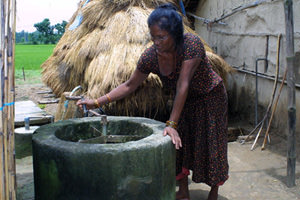
BADRENI VILLAGE, Nepal — Sabitri Dairi coughs quietly as she leaves her thatch-roofed kitchen, which is filled with smoke from an open fire. Like many other Nepalese peasants, she cooks with wood gathered from the nearby forest.
“It takes about 4-5 hours to collect the firewood,” she explained. Because the environmental charity World Wildlife Fund (WWF) is active in the area, Dairi also understands the environmental dangers of deforestation.
“It’s harmful to the environment and to the forest if we cut firewood down,” she said. “I’ve heard there could be landslides. The plants won’t grow if we cut the trees.”
The WWF and the Nepalese government have encouraged peasants to use biogas as a way to help themselves and the environment. Peasants deposit animal and human waste in a concrete tank buried in the ground. As the dung ferments, it gives off methane, which is piped into the house as cooking gas. The leftover slurry is used as organic fertilizer.
But each biogas apparatus costs $575, a lot of money for families that only earn $1,500 per year. The Nepalese government subsidizes 25 percent of the cost, but the peasants must pay the remainder from their savings or with micro credit loans.
The WWF hopes to raise $1 million for future biogas projects through the voluntary carbon offset market.
The organization gets credit for each ton of carbon not produced as a result of using biogas. It sells the credits to Myclimate, an NGO (nongovernmental organization) in Zurich, which in turn distributes offsets to individuals, airlines and other companies seeking to reduce their carbon footprint.
But the WWF must pay a European company $26,000 per inspection visit and for related services, according to Ugan Manandhar, senior program officer with the environmental organization. Numerous initial visits are required, followed by at least one visit per year.
Buyers of offsets say verification is necessary to ensure that carbon credits really do lead to reductions in CO2. But the cost and bureaucracy can be stifling.
Thomas Finsterwald, project manager with Myclimate, admitted that the high fees make “it difficult to do small projects.” He said inspection fees might eat up 40 percent of income for some other projects. “This is really a problem.”
Only 33 companies worldwide qualify to evaluate carbon offset projects, mostly based in Europe. Samir Thapa, an official with the Nepalese government’s Alternative Energy Promotion Center, said the demand for evaluation far exceeds the number of companies that can do the work.
“Sometimes you may have to wait to validate your project for six months or maybe one year,” he said. “Economically, that’s not very viable for the projects.”
Shaunna Barnhart, an American Ph.D. candidate studying biogas in Nepal, pointed out another flaw in the cap and trade system. Small, developing countries such as Nepal are penalized because they don’t produce much greenhouse gas in the first place.
She noted that Nepal has almost no polluting industries and has relied on hydroelectric power for many years. “It made sense to do hydro, which is renewable technology,” she said. But the Nepalese “can’t trade [large amounts of] carbon credits because they weren’t polluting first. So it’s actually rewarding bad behavior.”
Well-intentioned groups such as the WWF find themselves in a bind.
The WWF needs funding for an innovative biogas program that deserves government and international aid money on which it can’t depend. Because of the popularity of carbon offset trading with polluters in Europe, the WWF is forced to seek funds through voluntary offsets and they’re paying a lot of money to European inspectors to support a cap and trade system that ultimately may not help the environment anyway.
In Badreni village, a small number of farmers already enjoy the benefits of the pilot biogas project. The WWF’s Manandhar said his NGO has few alternatives to seeking carbon offset funding. “We can’t rely on foreign donations,” he said. “We should be self-financing if possible.”
Some environmental groups oppose the entire system of carbon cap and trade, arguing that the money and regulatory effort put into verifying offsets should instead be focused on reducing emissions from corporate polluters.
Kyle Ash, a Greenpeace official in Washington, D.C., said carbon offsets don’t “seem like a good investment especially when there are other ways to reduce emissions. We need to restrict global warming pollution” in industrialized countries. “And we need to finance clean development in Third World countries. But the two things aren’t connected.”
Your support matters…Independent journalism is under threat and overshadowed by heavily funded mainstream media.
You can help level the playing field. Become a member.
Your tax-deductible contribution keeps us digging beneath the headlines to give you thought-provoking, investigative reporting and analysis that unearths what's really happening- without compromise.
Give today to support our courageous, independent journalists.
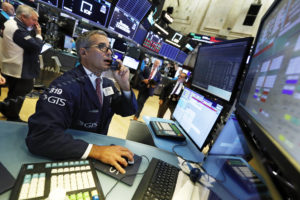
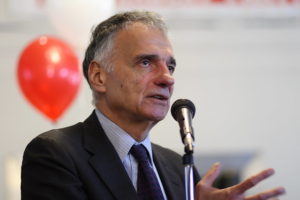
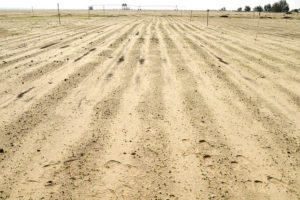

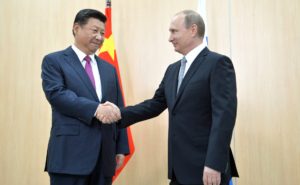
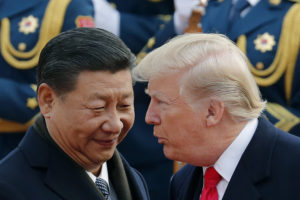
You need to be a supporter to comment.
There are currently no responses to this article.
Be the first to respond.